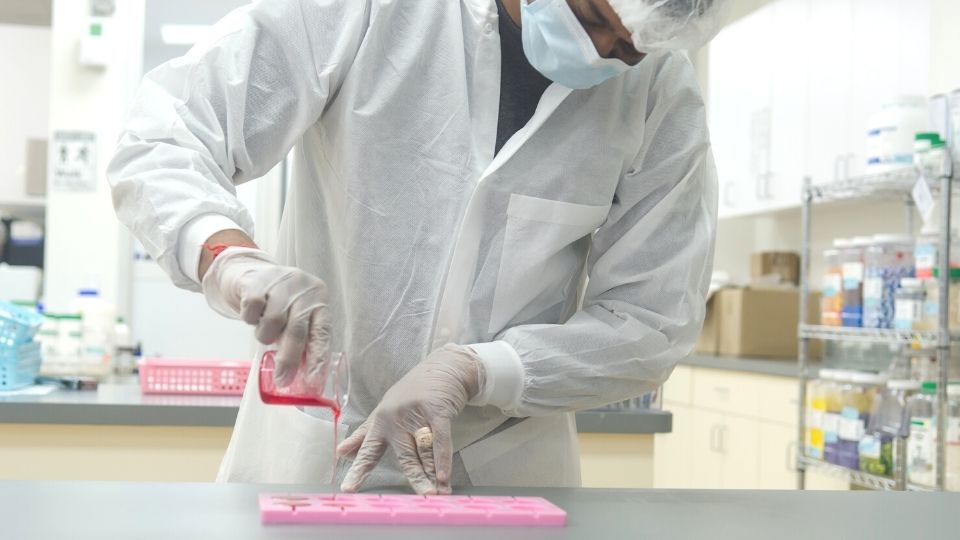Medications Catering to Individuals' Conditions
Pharmacy compounding is the preparation of prescription medications to meet the specific needs of an individual patient.
This may include:
- Combining active ingredients into one dose
- Tailoring the ingredients to avoid allergic reactions
- Making the medication in a different form for ease of use
For example, liquid medications custom-made for a patient who struggles to swallow pills.

History of Compounding
Before the emergence of mass pharmaceutical manufacturing in the middle of the 20th century, pharmacists compounded medications for patients on a regular basis. Then as manufactured dosage forms became more common, the traditional role of the pharmacist changed to more of a dispenser.
The one-size-fits-all approach, unfortunately, does not actually meet the needs of all patients, so compounding pharmacists work closely with prescribing physicians to tailor medications to meet the specific needs of an individual.
As more patients and physicians become more aware of their allergies and overall health, many turn to compounding to ensure the best results are experienced without medications containing allergens or unnecessary fillers or ingredients that may be leading to negative side effects.
Possible Benefits of Compounding
Pharmaceutical compounding offers a variety of benefits to patients and doctors ranging from making allergy-friendly medications to ease of use.
Recreating discontinued medications
A compounding pharmacist is able to recreate medications that have been discontinued by a large pharmaceutical manufacturer. This does happen occasionally when a medication is not used by enough people for it to be profitable for the company.
The hundreds, or even thousands of people who need that drug, must work with their physicians to find a drug that will provide the same effects and benefits. A compounding pharmacist can help to recreate the specific medication needed.
Allergen-free medications
Compounding pharmacists can also create allergy friendly forms of medication. Common allergens found in prescription medication include dyes, gluten, lactose, preservatives, and sugar. When patients are allergic or intolerant to an ingredient, the side effects can reduce their compliance or make it impossible for the drug to be effective. A compounding pharmacist can work with a physician to formulate a personalized medication without any offending ingredients.
Customized medication forms
Some medications have a terrible flavor, are not producing improvement, or a patient may not be able to tolerate it (swallowing pills, etc).
These issues can make it less likely that a patient will take a prescription as indicated or cause them to feel anxiety and be less likely to make appointments with the doctor or dentist. A compounding pharmacist can make medications more palatable with flavors or change the form from pill to liquid or even topical cream to improve compliance. Many dentists find flavored topical anesthetics useful when working on patients with needle anxiety and pediatricians may offer medication in more appealing flavors.
Changing the form of the medication can also provide a more targeted ingestion or application based on the patient’s needs. For example, pain can be treated through oral ingestion, topical application or other avenues of best absorption.
Here to help.
Optimize your patients’ experiences with dental procedures and recovery by providing medications that cater to their comfort and specific needs.

